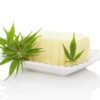Why are mislabeled marijuana products being legally sold?
It’s up to organizations like the FDA to regulate and ensure we are receiving safe and accurately labeled marijuana edibles for consumption. However, due to marijuana being federally illegal, there has not been much regulation on these products in states with medical marijuana.
How to tell if your marijuana edibles are mislabeled.
The best way is to take them to a laboratory that specializes in THC testing. This is not something many people can go ahead and do with every one of their edible purchases, just like we can’t do with each of the foods we buy.

Studies tested many marijuana edibles for accuracy.
Reporter Mike Sugarmen of the San Francisco Bay Area CBS local newsgroup put the areas medical marijuana dispensary products to the test for accuracy. They purchased edibles from 12 random places in San Francisco and Oakland and used the Steep Hill Labs in Oakland which has been doing this type of work since 2008.
John Hopkins Medicine also did a study on the accuracy of edible labels. They sent 75 different cannabis edibles from 47 brands to an independent laboratory for testing. The products were legally purchased from three dispensaries in three different cities: Seattle, San Francisco, and Los Angeles.
High Times comes in with their data on 58 edible products from the Seattle 2014, Los Angeles 2015, and Denver 2015 Cannabis Cups. The data was used to see if there’s a similar trend to the results of the above studies with some of the top rated marijuana edibles judged at the Cannabis Cups.
The Results
The majority of CBS’s tested marijuana edibles were found to be less potent than advertised. In fact, 6 out of 9 of these had less than half of the posted THC content. One of the companies with the most horrifying results was the Edipure brand, which tested at 1.3mg of THC on products labeled as 100mg.
The John Hopkin test of Seattle, San Francisco, and LA’s edibles found that only 13% of the products were within 10 percent of the claimed THC levels. 60 percent were lower than claimed, and 23 percent were higher. This means the majority of patients purchasing these products are not getting the doses they think they are.
The High Times results weren’t as bad, likely due to the best quality products being judged at these cannabis cups. However, they only had found 22 percent of the cannabis cup entries to be within 10 percent of the potency label.

What do these companies have to say for themselves?
Mickey Martin, director at Compassion Edibles, believes the reason his 100mg cookies tested at 19mg is the lack of proper testing methods at the lab. He claims, “testing foods requires far more extensive testing regimen than can be provided in current cannabis labs, in our opinion.” We’ve no word on the reliability of Compassion Edibles opinions so we won’t write off the test results from the lab that have been at it for six years just yet.
Angela at Medizin, who tested 55mg on their advertised 300mg Little Sours, blames a new supplier who “falsely reported his meds.” She made a switch to a vendor with lower prices than her last and didn’t test his products herself before purchasing, mislabeling and selling them to California patients. The fact that people with this level of responsibility are in charge of providing medicine is a bit daunting to medical marijuana patients who can’t smoke and count on marijuana edibles for relief.
The Problem
The lack of regulation is causing medicine in states like California to have inaccurately labeled marijuana edibles with no dire consequences. Some companies can and will likely switch up their suppliers or use low-quality marijuana when infusing edibles to increase profits. Since consumers can not see the cannabis used in the infusion process, patients look to labels when gauging the quality of the product. If labels are not accurate, patients will need test results for each product to know the potency.
The Solution
Governor John Hickenlooper signed a bill that became approved on May 29 that will change the way edibles will be sold in Colorado. This month Colorado began requiring the testing and certification of medical marijuana and products infused with it. The state of Washington followed suit, requiring THC and CBD levels to be accurately labeled. This type of regulation may be the solution to the problems patients in California are facing.
Other states or the federal government need to follow suit and force manufacturers of marijuana products to provide test results otherwise patients are risking spending their money on ineffective medicine or potentially taking way higher of a dose than they can handle. Actual medicine should be regulated to avoid such consequences.





















